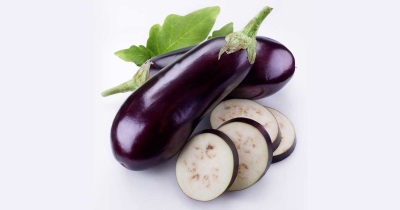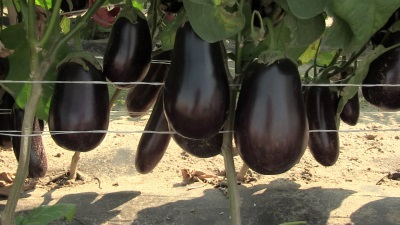At what age can eggplant be given to a child?
Knowing about the great benefits of vegetables, all moms seek to include them in the children's menu from an early age. And the introduction of complementary foods most often begins with vegetable dishes. However, there are vegetables that can adversely affect the health of a young child. These include eggplant, which is undoubtedly very useful, but with the wrong introduction to the children's menu can harm the child's digestive tract.
Benefit
- As a part of eggplants there is ascorbic acid, vitamins of group B, pectin substances, organic acids and other valuable compounds.
- The mineral composition of eggplants includes iron, zinc, manganese, potassium, phosphorus, copper and other elements.
- Eggplants are low-calorie foods, so they are valuable for dietary nutrition.
- The properties of eggplants are preserved after freezing or drying.
- The use of such vegetables due to the presence of dietary fiber eggplant stimulates the digestive process.
- Due to the high content of potassium, the use of eggplant is beneficial for the heart and the normalization of water-salt metabolism.
- Eggplant has a mild diuretic effect, as well as the ability to stimulate the secretion of bile.
- Eating this vegetable helps strengthen bones and restore cartilage.
More information about the benefits of eggplants for a person can be seen in the next video clip of the program "To Live Healthy".
Minuses
- As the eggplant ripens, the harmful compound solanine accumulates, so over-ripe fruits cannot be eaten.
- Eggplant is hard to digest and puts pressure on the digestive glands, so it is not recommended to enter into the infant diet too early or give the child in large quantities.
How many months can I take in the diet?
Eggplants are not recommended to give a child of the first year of life. Most pediatricians and gastroenterologists advise to postpone familiarity with such a vegetable until the age of three, but some parents treat them to babies for the first time since the age of two.
In what form to give?
Eggplants are consumed after heat treatment, for example, in a double boiler or in an oven. They are often baked or steamed with other vegetables, such as potatoes or tomatoes. Eggplant is often an ingredient in a casserole or baking. In addition, they are delicious in stuffed form.
Before cooking, fresh eggplant should be cut into plates and salt, and then leave for half an hour. Next, the vegetable is well washed, allowed to dry, and only then prepare meals for the child. If the eggplant is going to stew, its processing should last about 30-40 minutes.
Tips for choosing
When buying eggplant, which is intended to feed the child, choose young fruits, the skin of which is shiny and smooth. On the surface of the vegetable should not be dark areas, dents and damage. Usually a young eggplant has a calyx with a green scape.
What to do if you are allergic?
Although this vegetable is referred to as hypoallergenic, some children may experience an allergic reaction in the form of rhinitis, pruritus, skin rash, digestive disorders, swelling in the face, after the first sample of eggplant vomiting or other symptoms. There is also a cumulative allergy if the child consumed eggplant for several days in a row.
When expressed manifestations of the child should be shown to the doctor, who will write out the correct treatment. Eggplant from the diet of the child should be eliminated, and try to re-introduction is permissible only after several months.
































































